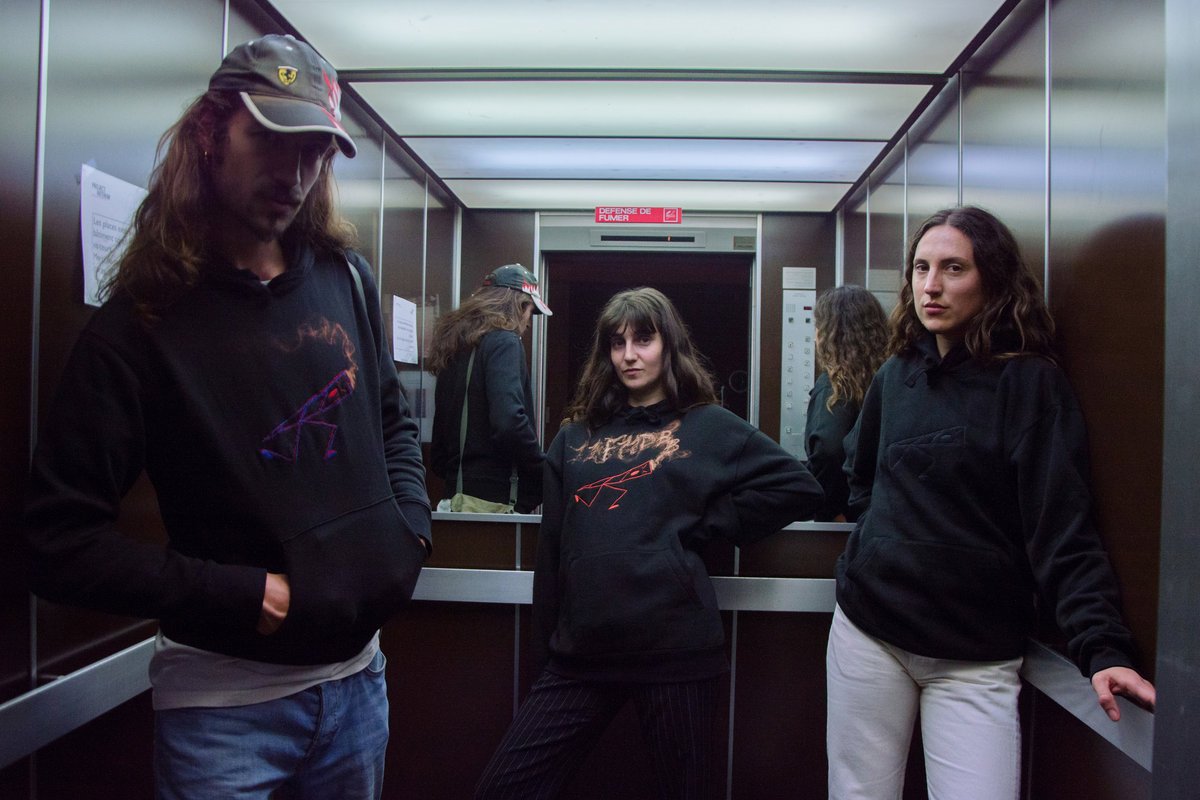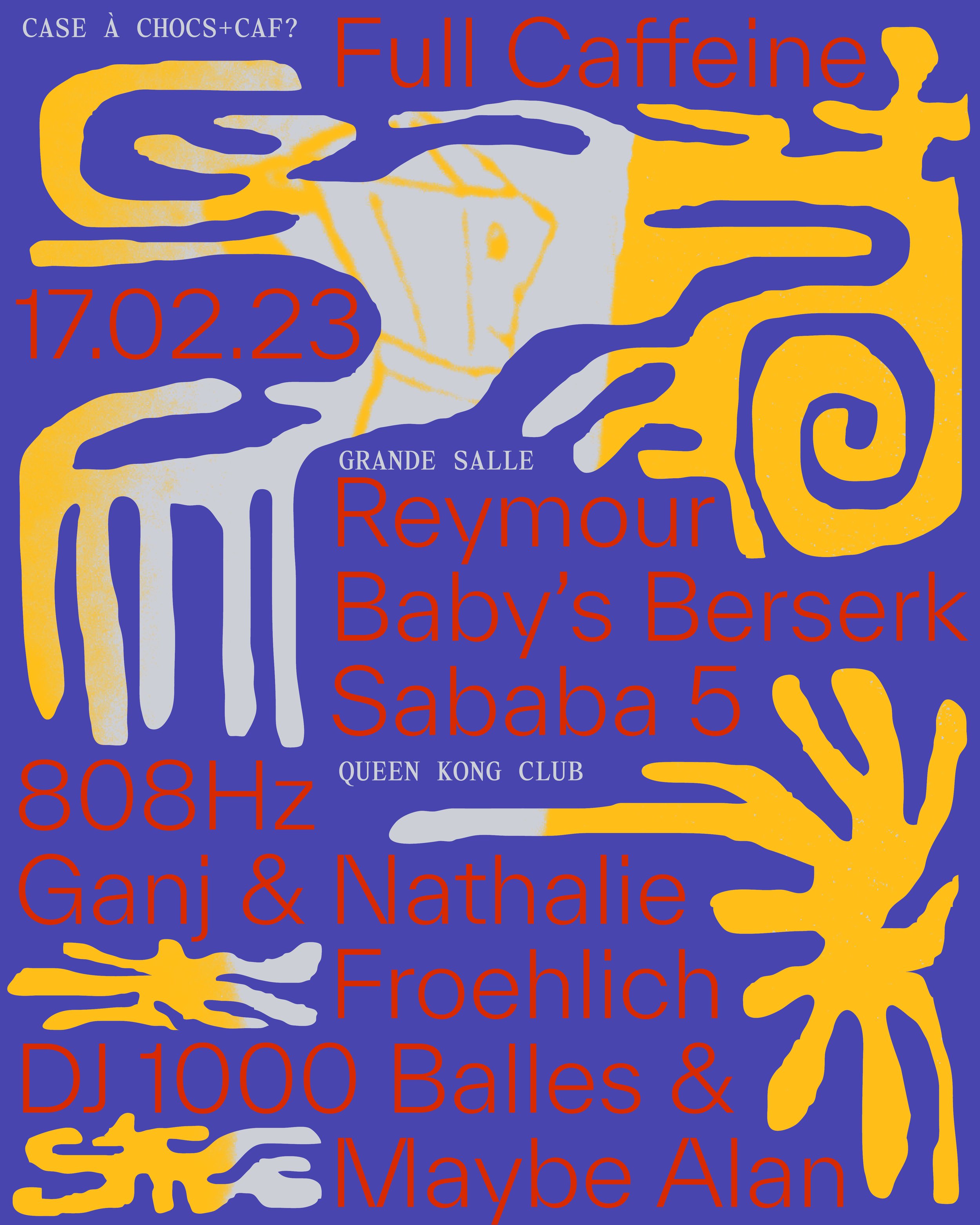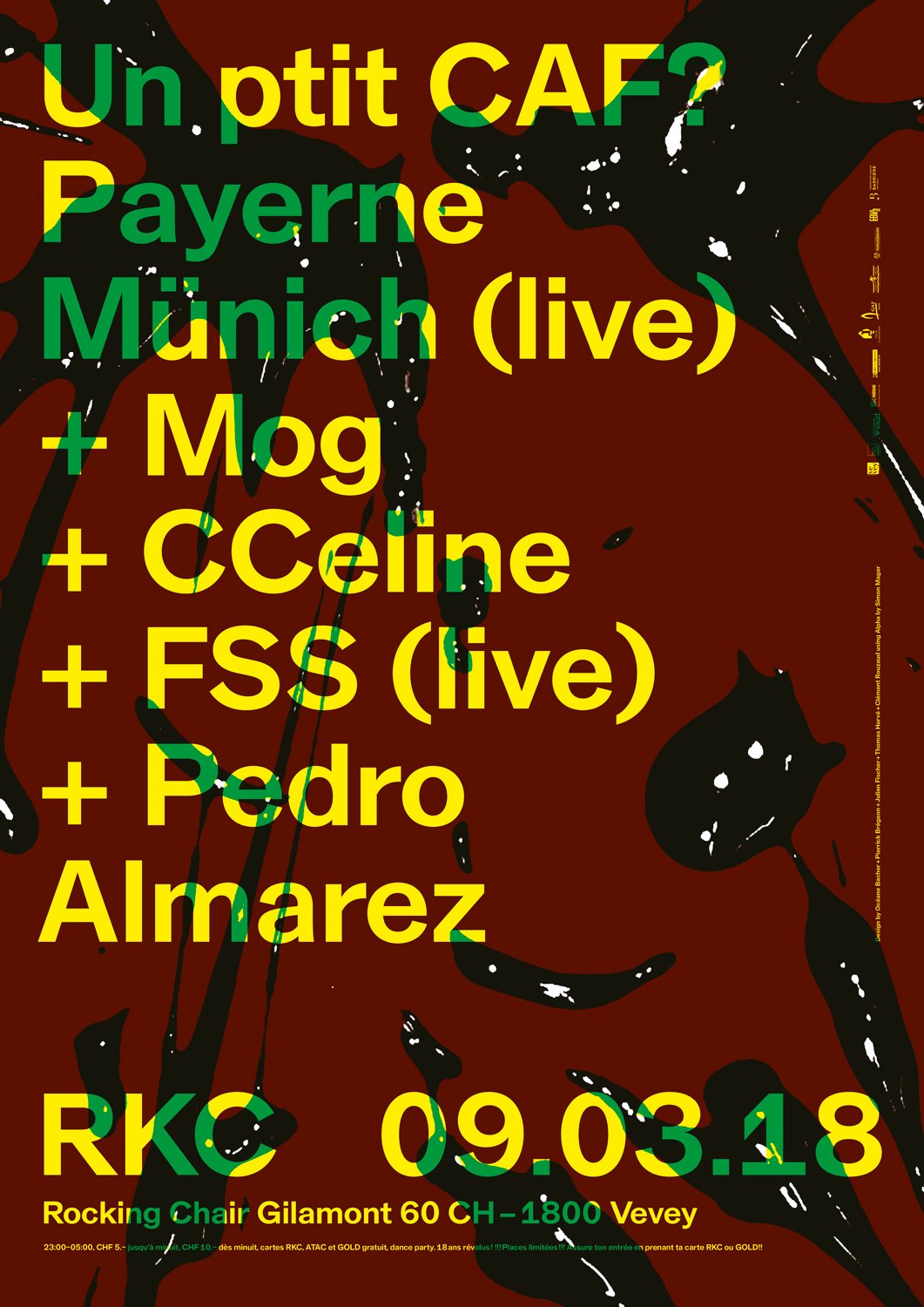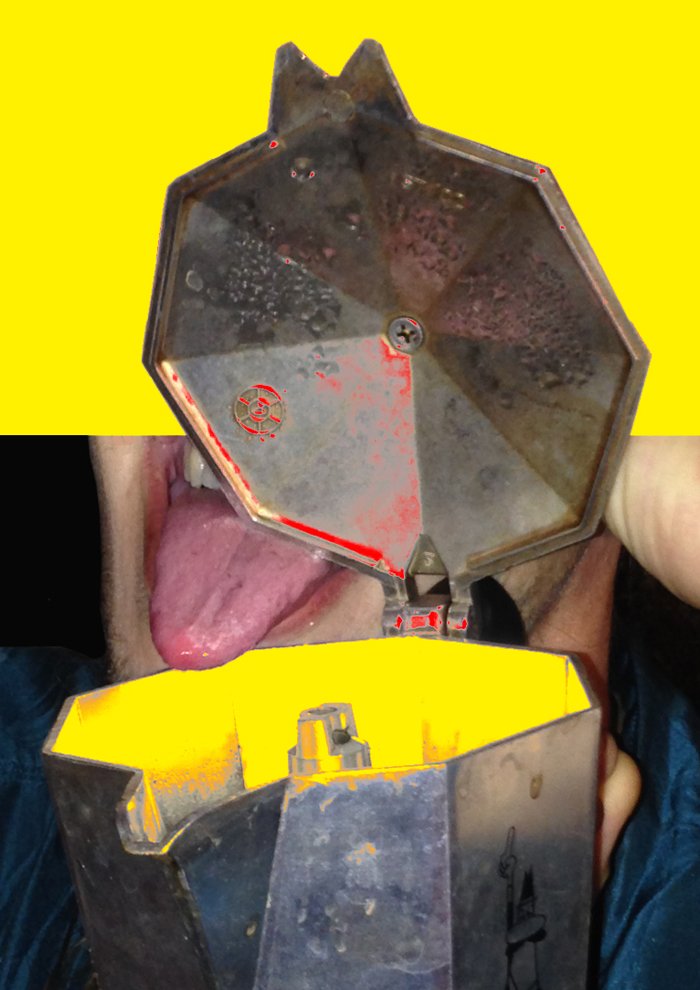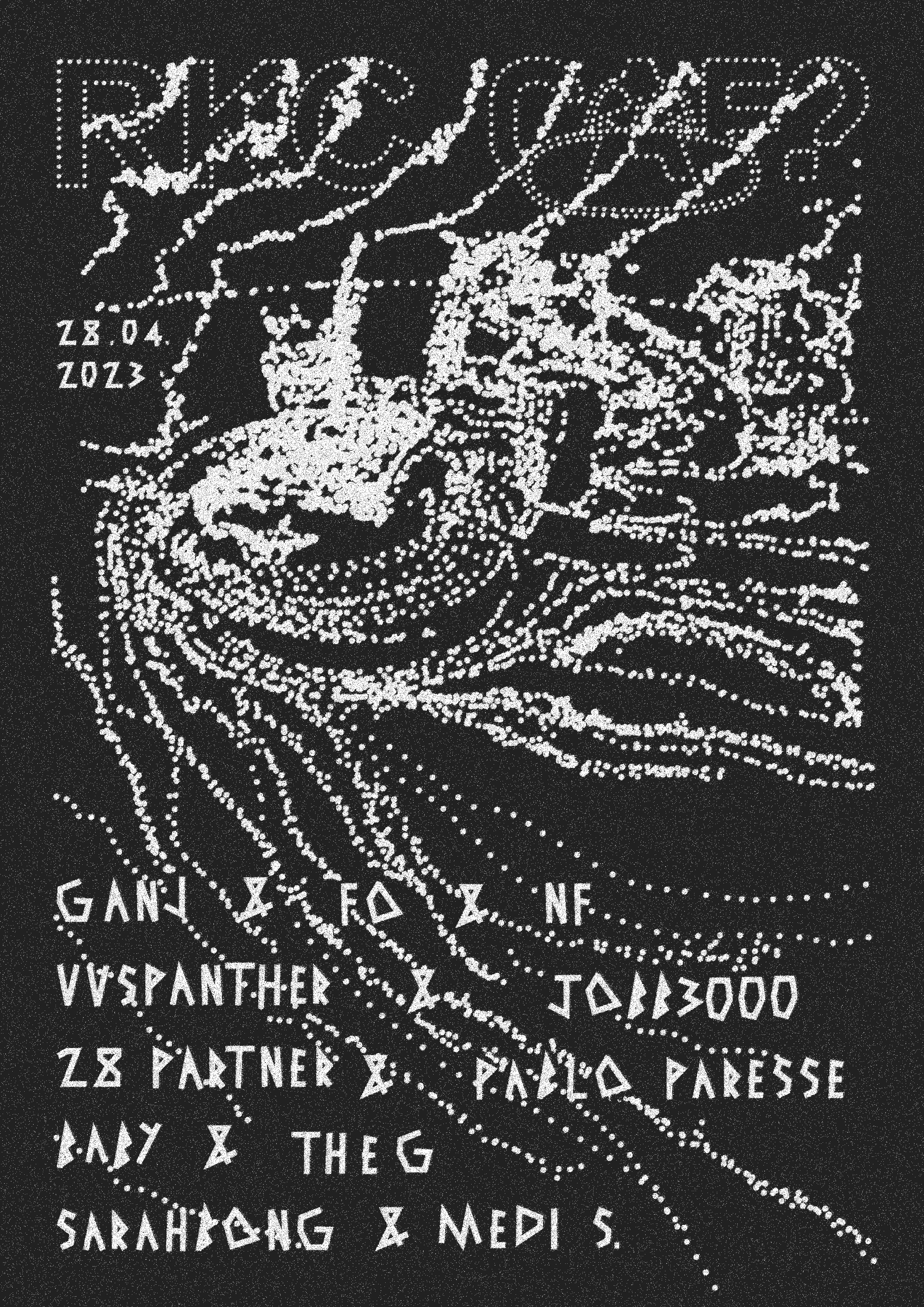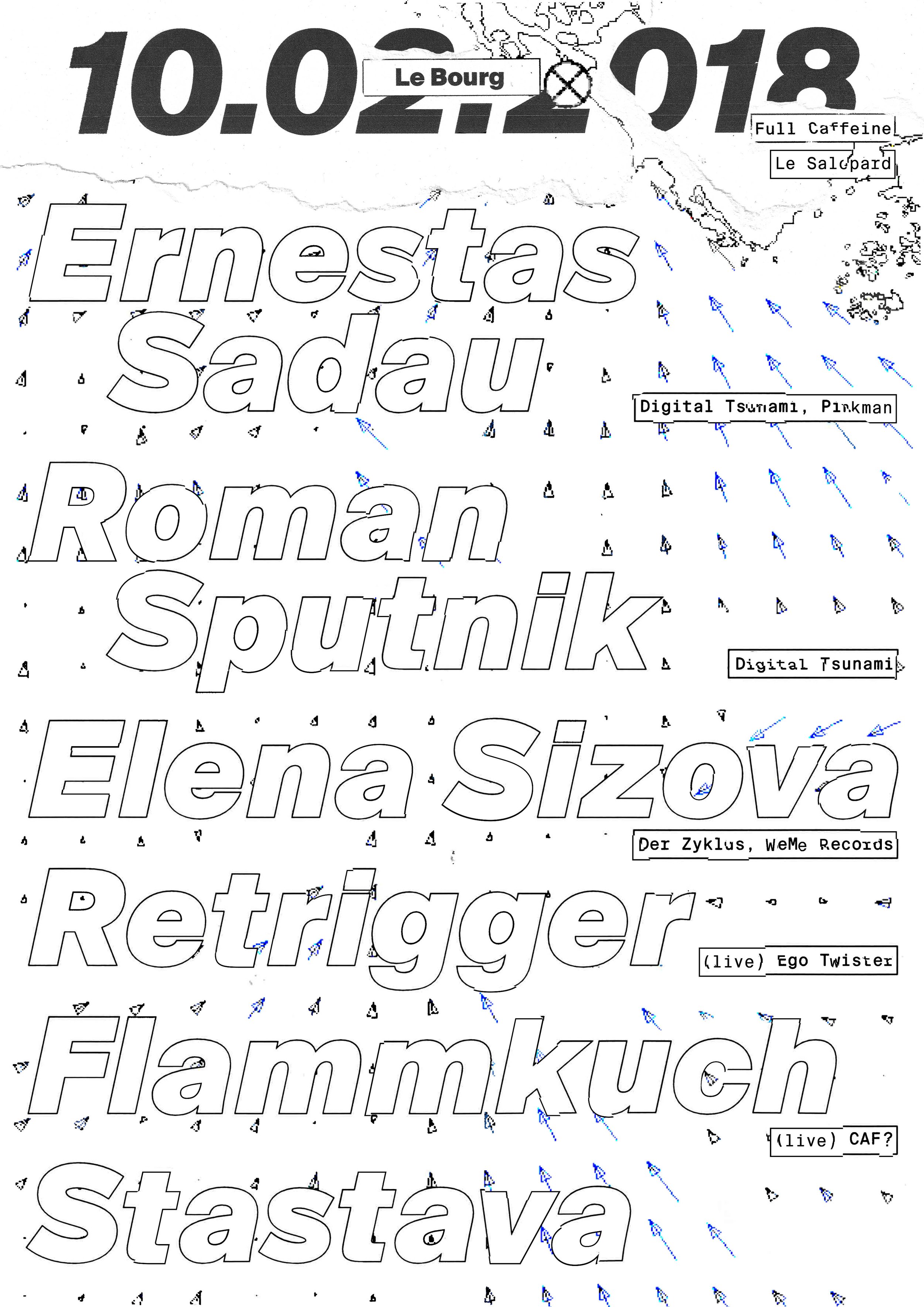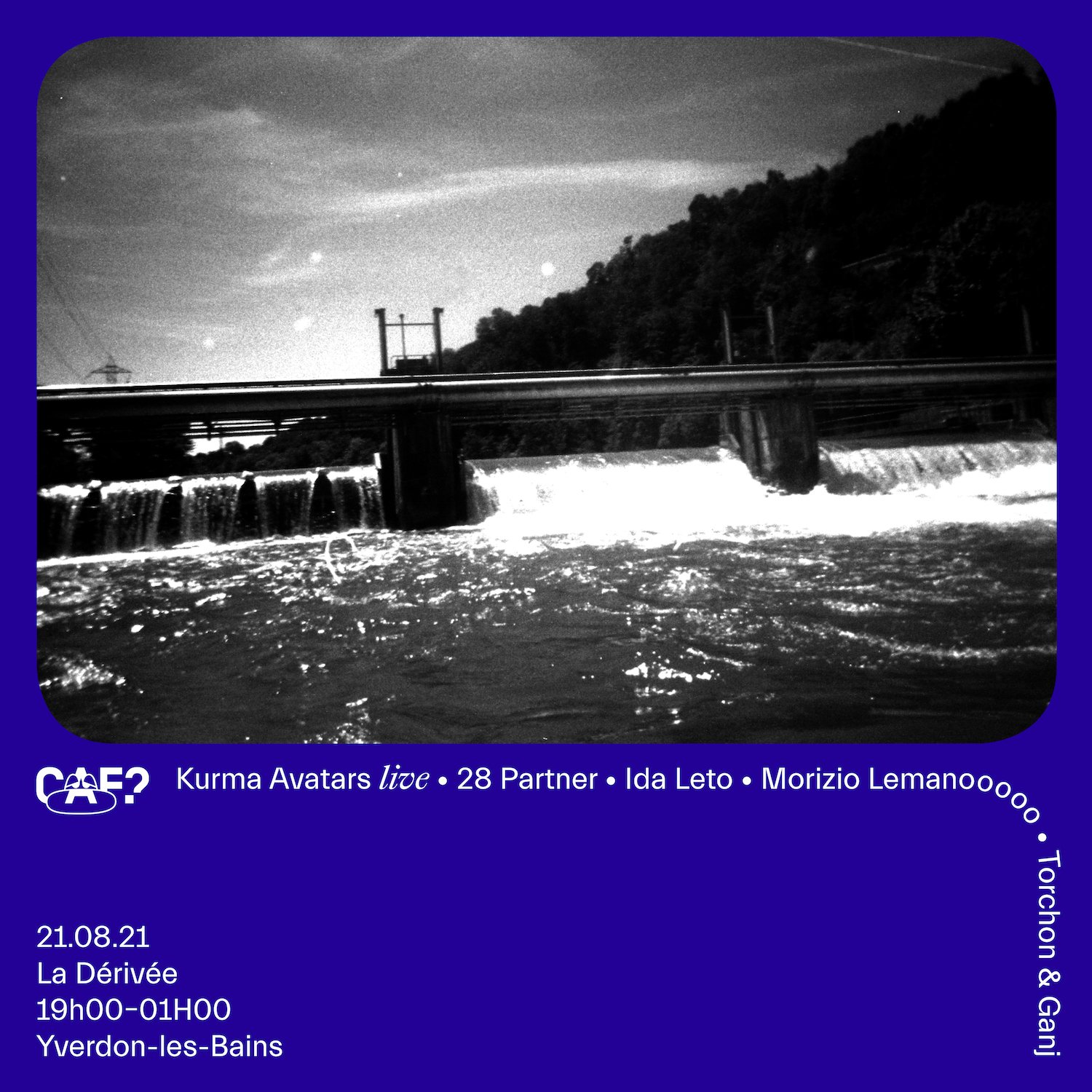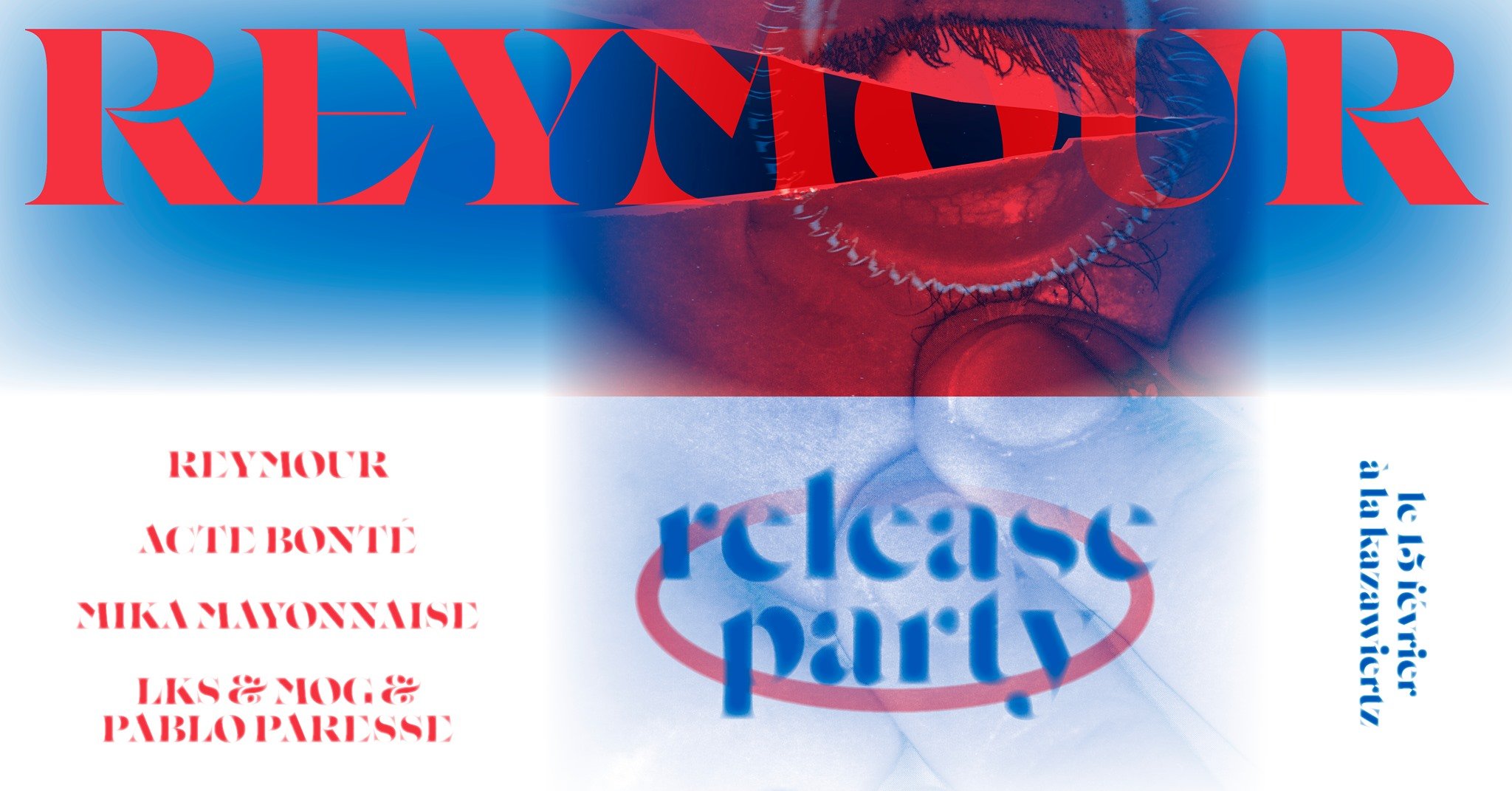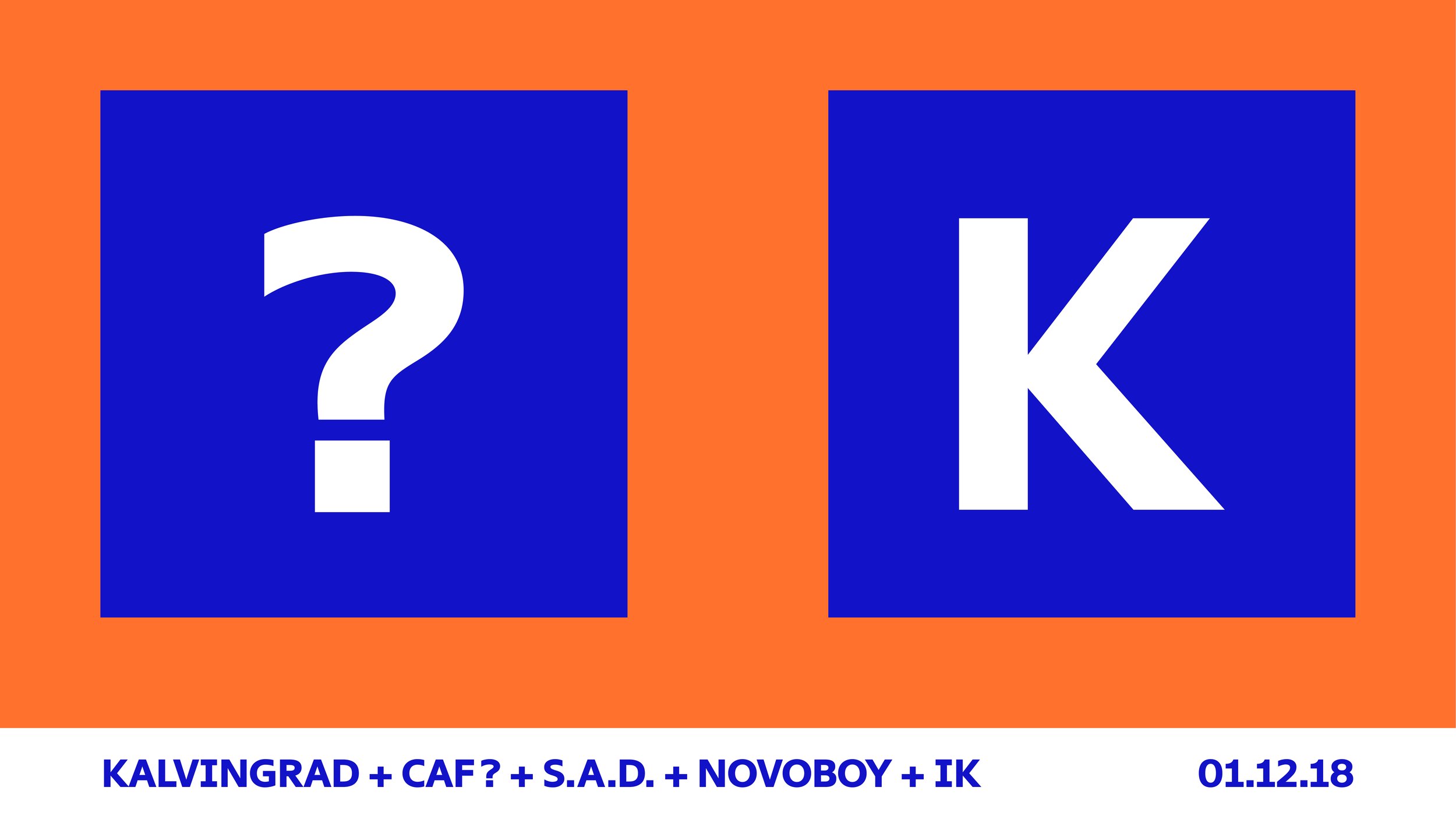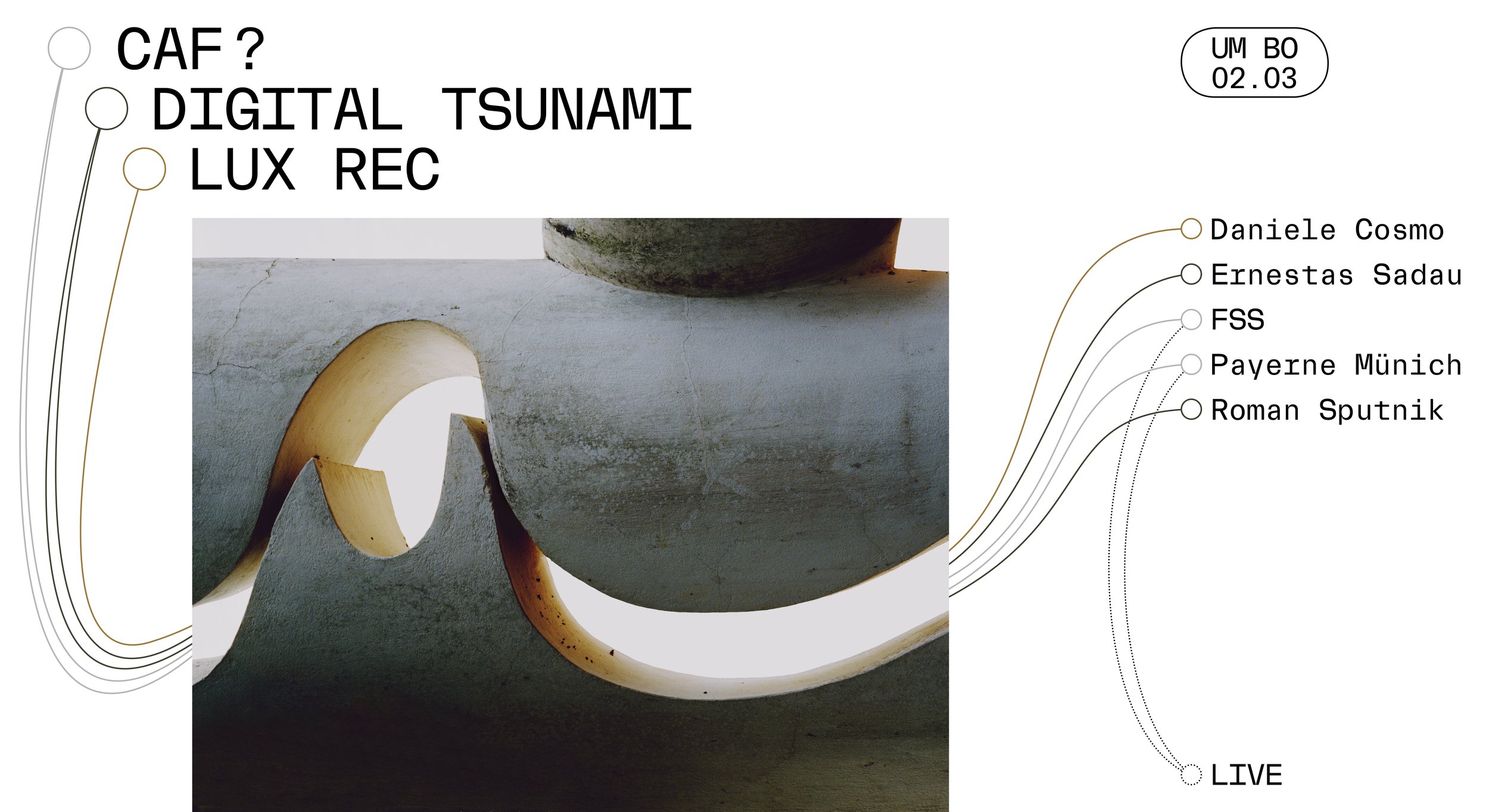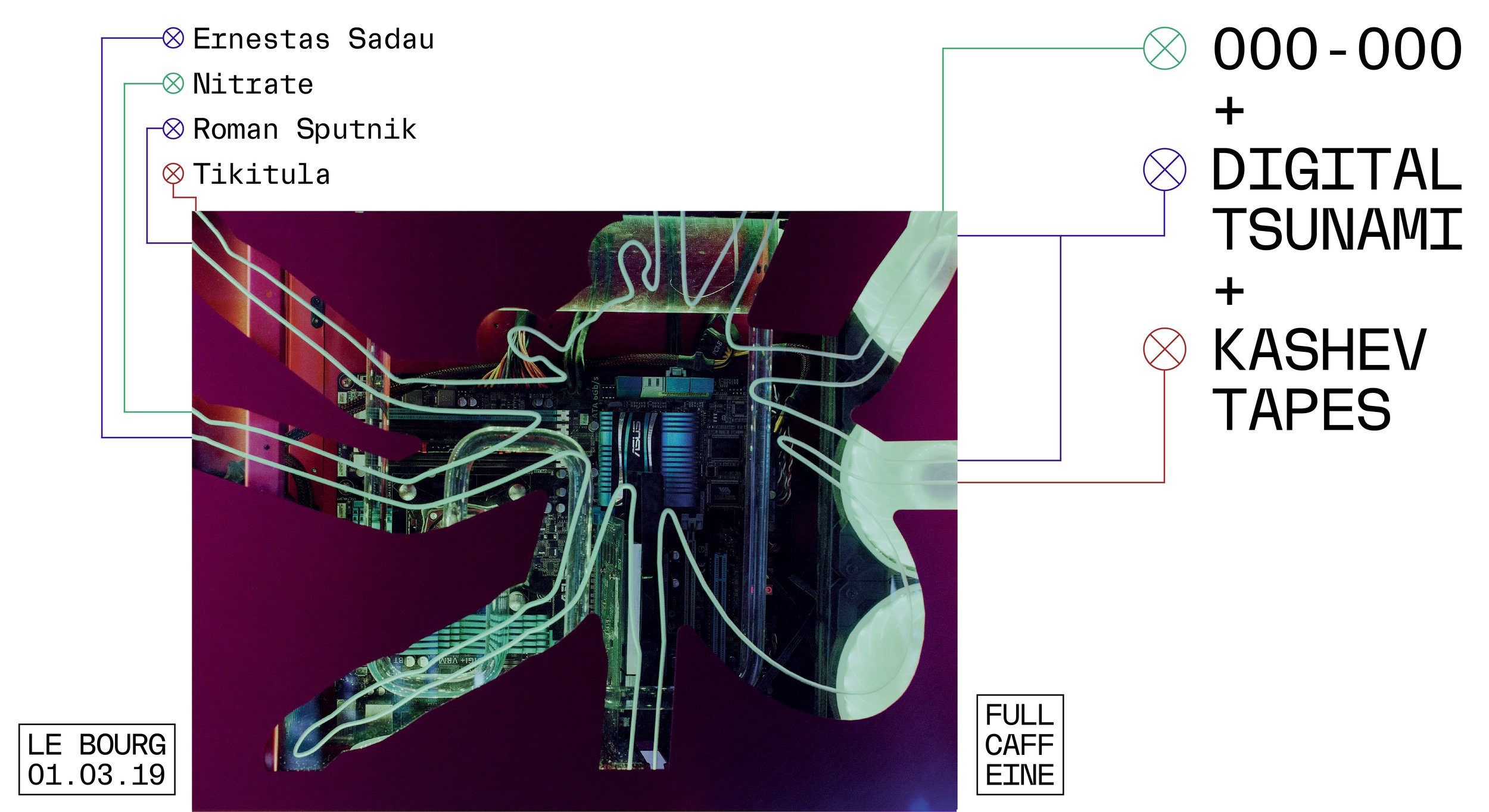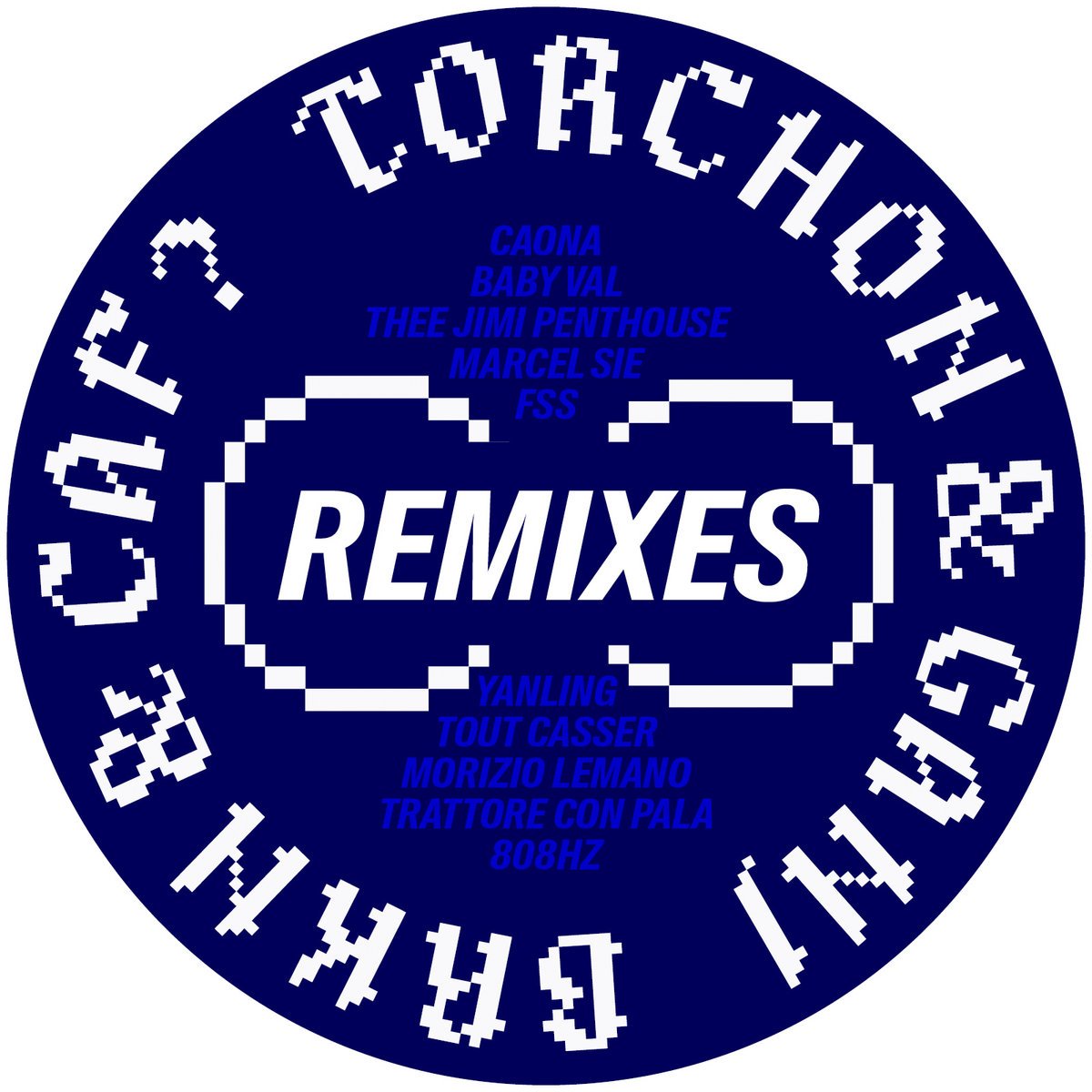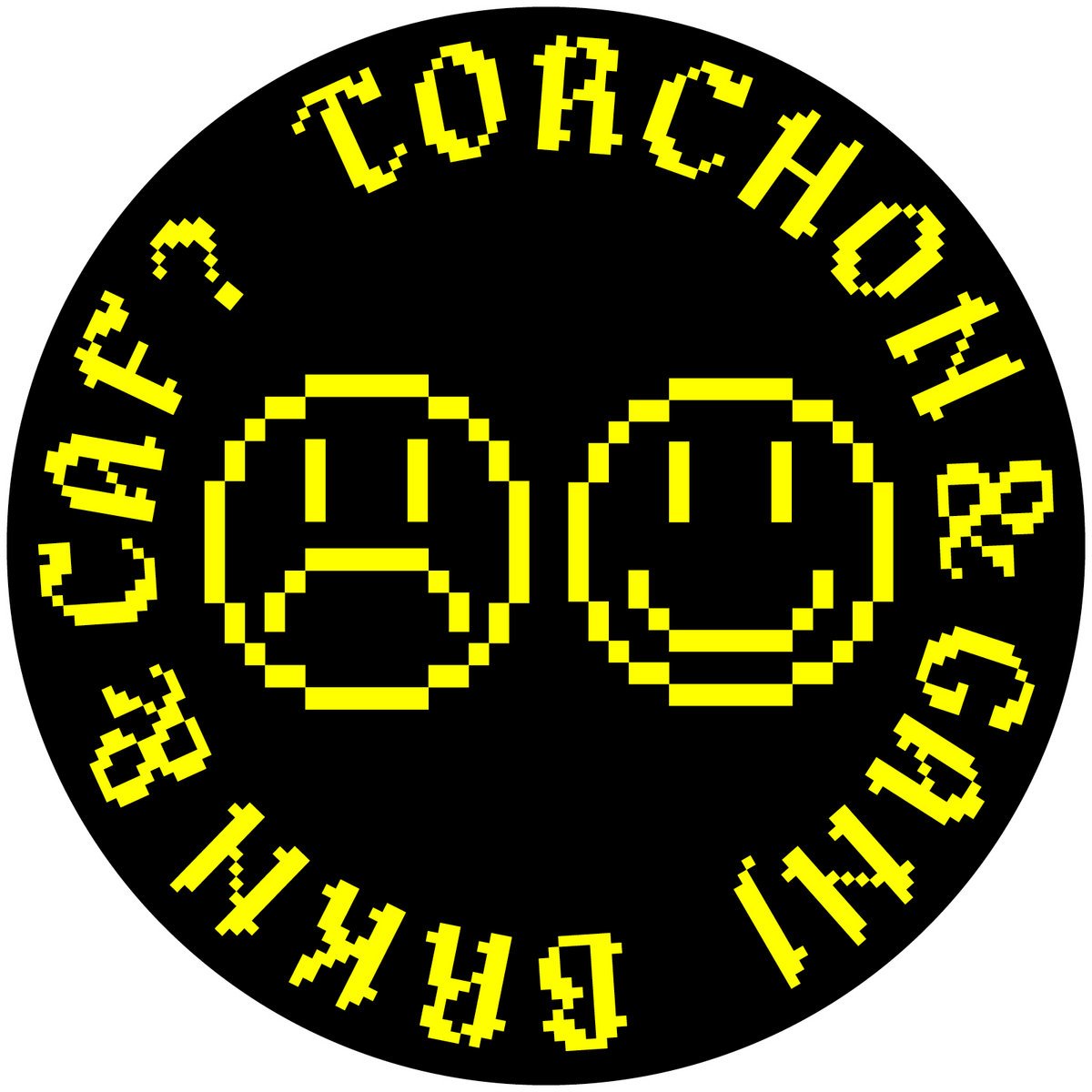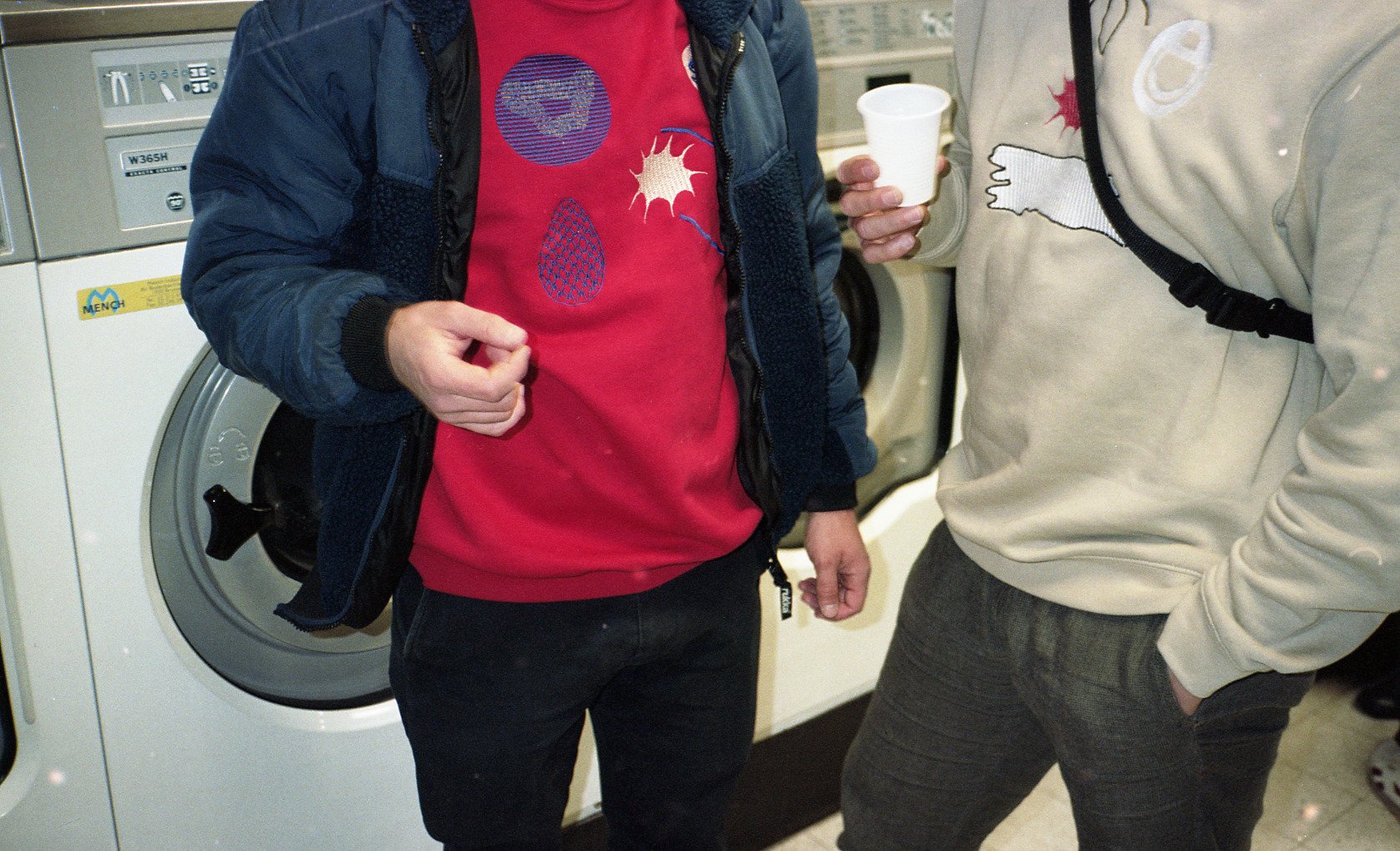In my city, you are enough.
A chat with Hector, Pablo and Sergey from CAF?.
In French, a coffee is a “café”, though commonly referred to as ¨caf’¨ in slang form. It also happens to share the name with Romandy based label CAF?.
Between two of the coastal cities of Lake Léman, Vevey and Lausanne, is where CAF? situated their headquarters. A Swiss music collective without blinkers, CAF? has been carefully curating a selection of independent electronic music since 2017. After nearly a dozen releases and many events organised around Switzerland, CAF? relies on the eclectic musical taste of its team in order to stay open to wide horizons. Listening to their multifarious roster, the adjectives that come to mind that can describe their releases are:
Loud and funky. Soft and gentle. Impish and whimsical.
The genesis of the collective came from a group of friends organising parties separately, but always inviting each other as guest performers. They soon began to join forces and work together in a more structured manner, allowing them to contribute more efficiently to help their local scene thrive. Still needing a name to define their identity, the word CAF? was soon adopted as it became a synonym of sorts for all of their meetings, a reference to the beverage they drank whilst discussing the topic of the day. Over time, it came to symbolise the premise of discussion for an artistic project.
“On en discute devant un p’tit caf’?” (We talk about it in front of a little coffee?).
Once only six, they have since doubled in size. I get to catch up with two of the original members, Hector and Pablo, alongside their latest collaborator, Sergey. In this chat titled “In my city, you are enough.”, we talk about the origins and activities of CAF?, the intricacies of the Romandy scene and the benefits of living in a multicultural and thus multi linguistic country.
[...] So what was the genesis of CAF? ?
[Pablo] It’s funny because in the beginning, a fair amount of people think of it as an acronym for different reasons. Since we are Swiss, some of our French neighbours thought that it stood for Caisse A Fromage (Cheese Box) or Caisse d'Allocations Familiales (Family Allowance Fund). Or our friends that were into fitness thought it meant Cuisse Abdo Fessier (Thighs, Abs and Posterior). But anyways. It has been since 2017 that we’ve been acting as a collective. Originally we were six people and then had our first release in 2018. As individuals, we were already organising parties for ourselves, but always inviting each other as performers. Eventually we joined forces and started working more proficiently together. We realised that there was a lot of interesting musicians in our local scene, but not so many platforms to showcase this specific type of music creation. So that's what we tried to do through events but also releases. It’s also for everybody to have a platform to safely experiment and channel through their inner creativity. It was a bit of a long sought out process because we didn't want to do something half assed. So we sat down as a group to see how we could benefit and contribute better within our immediate vicinity.
[Hector] It was great because the events we were organising were working quite well. So any profit made we injected back into the label and it helped it grow organically, events and label side by side.
[Pablo] We were very open-door in terms of potential collaborators. Although we started it off as six people, other friends would come and go as temporary contributors for different creative ventures.
[Hector] As a matter of fact, I think that’s one of the reasons why our roster is so diverse in sound. The idea of having multiple people working with each other is used to our advantage because ideas constantly rotate and always feel fresh. Anybody can pitch anything, and then we decide as a group what we’d like to do with a release. It avoids us staying stuck too much in the loop.
Did you feel that there was demand at the time for a more electronic oriented sound in Romandy?
[Pablo] Well it’s a bit subjective because it feels like Vevey is more rock oriented. So it is by no means to suggest that we were the only label or collective around. But we wanted to do things a bit differently. A means to shine a light on the more electronic/dance/experimental side of things.
[Sergey] I think it helps a lot that we all come from the same place in terms of disciplines. Whether being DJs, producers or graphic designers, it helps because it makes us more in touch and understanding of our surroundings. Quicker to respond and observe what may be lacking and possibly how we may elevate a solution towards a sought out idea. That, and it helps us in terms of organisation. For example, I usually produce under the moniker of, but collaborating with Ganj ( Lukas Stocklin; another original member of CAF?) by MCing at an event who is also one of the original founders of CAF?. Or Torchon with 28 Partner (other original members that could not be present today). Since we also release our own music, it always feels like we do stuff in an intertwining fashion. Always interconnecting and gravitating towards each other.
With such a diverse sound in the label side of things, how would you describe CAF? 's sound?
[Sergey] Difficult to describe! It’s an independent sound that gets delivered as a synthesis of professionalised Lo-FI.
[Hector] It’s perhaps not so much about sound in the literal sense, it’s more of an idea. It’s not about the money making. It's about providing an infrastructure for our local scene that is underrated and needs to be heard on a wider scale. A hub to meet like minded personalities.
[Pablo] We are a lot of people in the label and we all listen to music from many different horizons, so I guess this is why there's such a strong focus on eclecticism in our roster. We also really cherish this idea of collaboration with the artists but also between ourselves. Helping each other, friends and locals. Like the whole release process. We don’t like so much receiving music that is already done (mixed and mastered), with an artwork and a decided track list. This is not really a fit for what we do. We would rather grow together with the artist and have our creative input in the release as opposed to just having music ready to send out and somewhat lazily just putting our label’s “seal of approval” onto it. We had situations where everything was done and we’d just tell the artist that they might as well release it themselves because there is really not much to add on our side, whereas we want to contribute our side in effort.
Coming back to what we were saying about CAF? having a diverse sound, what was the reason behind your ESPRESSO series?
[Sergey] Well, this started during the COVID period. It was a means to continue putting out music on a monthly basis in a more financially sustainable fashion since it’s evidently more difficult to promote physical release due to events not being possible anymore as a means to support the music.
[Pablo] It’s also related to the reality of the time it takes to produce an album, especially on vinyl. So it’s a way to hopefully share the spotlight with others and keep things moving as there is so much cool music to be put out in our area. It’s nice to have this also from the perspective of someone who may not be familiar with our work. A sort of introductory business card, a sampler of the scene.
[Sergey] An espresso is like a coffee after all. To some extent. Except shorter but without compromising quality.
Being active and a steady contributor within the local scene for nearly half a decade, did you notice any significant developments within the Lausannean or Veveysian scene?
[Sergey] I mean… so much and nothing. Where to start? Well one aspect is that the rave scene, free parties, have shifted for goa or psytrance music into more hardcore, neo trance gabber style over the course of a decade. But things are bound to evolve and change right? The next generation takes over with what they are brought up with.
[Hector] On that thought, repression is more pressured in parties around Lausanne. Police come earlier and it becomes harder to throw parties. But new places, venues, are supposed to open so there is hope and something to look forward to. The thing with Lausanne is that it is much more difficult to organise parties. Cultural funds don’t seem really go towards that, but rather towards the opera and orchestral houses and stuff. There’s an enormous disparity in all of that. Much richer cities in the likes of Geneva or Zurich have budgets and as a consequence, more opportunities for locations that become cultural institutions throughout the years. Lausanne lacks structure in that sense and therefore we still rely immensely on throwing self supported parties or raves.
[Sergey] Which is very contradictory on the other hand because there’s quite a lot of festivals going in our area. Electrosanne, Hyper Ouest but then again I think it is mainly on a volunteer basis.
[Pablo] Despite being a student city, it does not seem like the Lausanne municipality takes much responsibility in making the younger scene thrive. They even said very clearly that they like to preserve this sort of precariousness because they see that us locals, no matter what, will give it our all in order to make something happen, culturally speaking. We figure out what we have to do to make ends meet. So it’s pretty messed up in that sense that they fall back on that premise without really aiding us.
In the 90s - early 2000s, with Geneva having its big squat dub scene and Zurich with its more techno/trance rave scene, both cities have formed an international identity. Why do you think Lausanne lacks such a cultural identity since we talked about it being a city with many universities situated there?
[Hector] It’s a good question that cannot be answered simply unfortunately. I mean, the lack of infrastructure, rehearsal spaces and so on. I feel like there’s a big turnaround in Lausanne; People come, most times to study, see there’s not much going on, then leave to a neighbouring city where the scene is more vibrant. A lot of people go to Geneva to rehearse for instance because it’s more accessible in cultural availability than in Lausanne. You can argue that we (Lausanne) also have a squat scene, but again, it stays always underground due to having low revenue and thus it never really evolves. At least very slowly.
[Pablo] Then you compare that to Vevey which we affiliate a lot with. It’s a much smaller city and yet there are more cultural services like the AFM to support us and more contemporary music. They also help by providing studios at affordable prices for artists to use. These spaces are so important because then it becomes a meeting point for like minded people to meet, interact and share ideas and thus grow, similar to how CAF? started. We were kids doing our own thing whilst being on the same page and therefore eventually merging forces to grow together. Although we are talking in this case more about rock music, it is therefore not coincidental that a lot of bands from Romandy come from Vevey for that reason, despite being ten times smaller than Lausanne.
[Sergey] And of course Lausanne is very expensive to live in. Geneva is too, but then it is compensated by its cultural aspects. Vevey is cheaper and yet culturally funded, so then the choice is easily made after a while.
[Hector] Which is exactly one of the things that lead to CAF?. To be some of the people to at least give an umbrella name to our scene and to help it being recognised on a bigger lens. It's our way to contribute differently and to showcase a different take on electronic music talent. But again, it is not to say that there is nothing in Lausanne. There’s mythical places like the Espace Autogéré (formerly Dolce Vita) and Le Romandie, which were self managed. Or other organisations, like L’Association du Salopard, Centrepoint or Fracanaüm. Venues and people come and go but then that is only because everything is sustained and self managed by individuals. So people do what they can do to make it survive, even if the energy comes in waves. It’s crazy because I felt that in the eighties-nineties, Lausanne was kind of known for that. Quality parties but all done on your own means, which people don't regret doing but yeah. The cultural terrain was sustained on the back of people who were doing it for free. I’m sure that they were happy to do it, but you know, never any money involved, so people eventually move on.
What about the idea of Switzerland being multicultural? How does that complicate things since we have four national languages? Does this create more division within the scene?
[Hector] Yeah it’s another point. We call this border the Roesti Grabben (the Roesti trench) or in the case of the border between German-speaking cantons and the Italian-speaking canton of Ticino, Polentagraben. It’s really present and a thing. It's not always easy since there is truly a division of languages where most of the time, we ironically have to resort to speaking in English. A lot of Swiss are multilingual and speak all national languages, but that differs from which area you come from (such as a major city) and your upbringing.
[Sergey] It’s interesting because it’s more pronounced when dealing with higher end institutions. Whereas with independent, upcoming collectifs or labels, the division seems to dissolve. People of the aforementioned scale seem more willing to compromise in communication because we need each other more. We invite each other to our territories and build a strong bond. Since we do not necessarily speak each other’s languages, it is actually beneficial in the sense that we are all Swiss but then have easier access to our neighbouring countries, where it opens doors for ourselves. In the sense that building liaisons in Swiss Germany, means that we have easier access to pierce the German scene. Same for Swiss Germans, where they would have access therefore to the French scene. Or Italian. So therefore it helps a lot that although we come from the same country, it creates a hub to access foreign ones whilst sharing the same nationality. It becomes meeting points.
[Pablo] Although Swiss Germany and Romandy are only a couple of hours away, we don’t go there so often, despite having organised quite a few nights in places like UMBO. Regardless, There’s a lot of exchange. Like that collaboration we did with BRKN Rec. from Basel. We keep in touch, always.
[Sergey] It adds on to the fact that bigger cities, Geneva or Zurich for instance, have a really big international community. So it really helps in branching out internationally simply because we speak multiple languages. Also, with the rise of technology tools like social media, there is a dissipation in the idea of localism and the underground. Everything is more exposed and accessible nowadays. Borders in communication are breaking down.
[Pablo] You have to remember that most art-related things in Switzerland remain super niche and underground because of our size. So in regards to our neighbouring country (France), since we speak the same language it is easier to merge niches and join forces of same scale cities with people from. There's a lot of common points where we can share all together and turn our activities into something more legitimate. For instance, our residency on OLA Radio where they moved from Bordeaux to Marseille, led us to collaborate with different cities in France. Therefore we got invited to play in their neighbourhood and them in Switzerland, under the premise of cultural exchange.It follows you around throughout basically. And now people from those cities are sending us demos. It’s a nice way to broadcast our voices and say that we exist and an open-invite collaboration and to churn together from the same core concept since we all share similar sentiments of obscure-scene-small-city syndrome.
Although you focus on locality whilst not necessarily prioritising it, we were also talking about the benefits of expats within your locality. I saw you did a release with Renée Van Trier which I know is originally from Tilburg. How did this come to be?
[Hector] I was working for a while in a contemporary scenic art theatre in Lausanne where Renée had a residency for many years. Through there we met on and off but at regular intervals. Although she was Dutch, it’s funny because for me she’s pretty much a Lausannean. She had been making music for a while under her duo project called Milligram Retreat but wanted to release some solo works of hers. Her work really spoke to me because I always thought of her as very interesting and inquisitive in exploring the experimental realms of music. And so that was another example of CAF? that proves that we don’t necessarily need to stay local, but to release our friends within our vicinity that share a similar vision.
[Pablo] It’s true that we never really released music from someone who was completely out of our immediate circle, such as scouting for talent on the internet. It’s like this other “foreign release” we did with the Swedish duo Five o'Clock traffic. How this came to life is that went on holiday in Sweden with friends and, long story short, ended up celebrating Midsommar eating herring and drinking aquavit at a fifty years old gentlemen in the middle of the forest. One of the person present turned out to be M Jupiter, which music we already knew. We invited him 6 months later to Switzerland for a little tour all together with his friends Five o’clock Traffic and towLie. Through this our relationship grew and we ended up releasing their music. So there you go, although it was foreign people where this time we met abroad, there is still a very personal relationship premise that led them to getting released through CAF?.
Well most people still confuse Switzerland with Sweden, so perhaps it is not as far-fetched as you think. My last question is a bit controversial for some, perhaps the equivalent of asking a parent which is their favourite child. Do you have a release of yours that particularly stood out for you?
[Hector] It would have to be Renée's release. Partly because it came from me and our personal relationship. But I think mainly due to the fact that we never released something as experimental as this. A lot of people, whether friends or acquaintances, were quite sceptical of it and its success because it is a really weird record. But because of its international connection and also because we were successful in finding the right audience for it, we managed to sell out rather easily and quickly. It was a statement for me that anything is possible and that there aren’t any restrictions when it comes to liking music. It showed to me that there is something for everyone and that you just need to find the correct target group. So this release gave me a lot of insight and hope for these different reasons.
[Sergey] For me it was the “Torchon & Ganj” release, which also happens to be members of CAF?. This release was in collaboration with BRKN Records from Basel, for which they released the original tracks on a tape and we released ten remixes from friends.It’s also my favourite release because of the merch’ we did to promote it. It can be difficult to sell a record at parties because it's annoying to carry around with you for the whole night. So we opted for this release as a sort of “ravers pack”. It was a USB stick that contained the remixes as well as a cassette that had the the original album. So both these items were inserted in a fanny pack, all custom and limited edition for the night. Then you didn’t have an excuse not knowing where to put the merch’. It was a cool alternative way of doing things that proved to be successful.
[Pablo] For myself, it is the first release we did, “IR 90”. It is also a statement for me, but in an introductory sense. This V.A. (Varioust Artist Compilation) is special because it comprises everything we would stand for before and later on; a compilation filled with music by people from CAF?, friends and people from our immediate vicinity. Additionally, the artwork comprises the number IR90 spelt à la Swiss (nonante instead of quatre-vingt dix). It is a reference to the Inter Region train line connecting the cities coasting the lake Léman, passing through Vevey, Lausanne and Geneva. It’s a very symbolic release for me as it contains artists from each city. It became the genesis of our story, both visually and sonically.
Stay up to date and get in touch with CAF?



